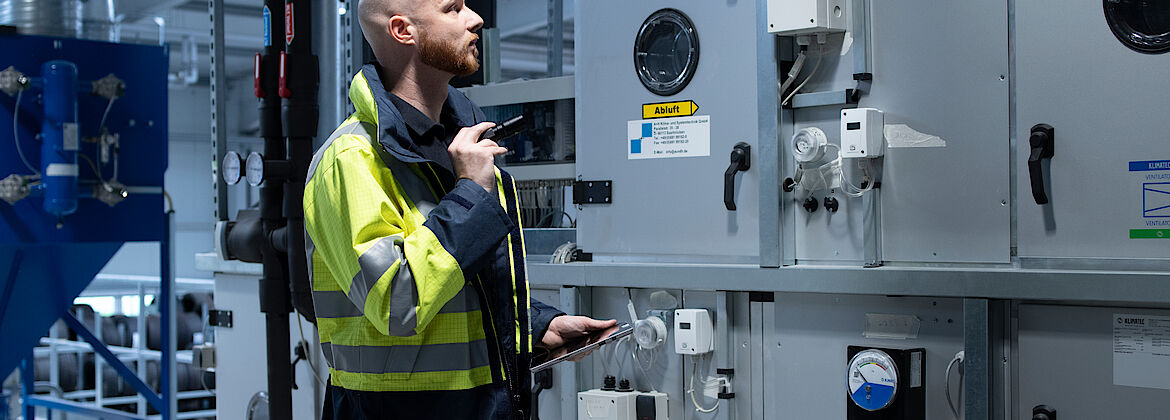Energy-assessment inspection
of ventilation and air conditioning systems in non-residential buildings as per Section 12 of the Energy Conservation Ordinance
European directive 2002/91/EC (Energy Performance of Buildings Directive – EPBD) mandates the improvement of total energy efficiency for buildings in the European Union, taking prevailing local climate conditions into account. National implementation of this European Directive was effected in Germany with the passing of the Energy Conservation Ordinance (EnEV 2009). The version currently in force went into effect on October 1, 2009. Not only does it require that an energy certificate be prepared for residential and non-residential buildings. It also mandates an energy-assessment inspection for ventilation and air conditioning systems, another important element in attaining the goals set forth in the EPBD. Here the great energy-saving potentials in climate control systems have been given particular attention.
An excerpt from Section 12 of the Energy Conservation Ordinance, mandating energy-assessment inspections for air conditioning systems, reads:
(1) Operators of air conditioning systems permanently installed in buildings and with rated refrigeration requirements of more than twelve kilowatts shall have energy-assessment inspections of these systems carried out by persons authorized as per Paragraph 5, at the intervals specified in Paragraphs 3 and 4.
The energy-assessment inspection is to be made at the following periods:
1) For the first time during the tenth year after commissioning
2) Recurring inspections of the system every 10 years
3) In the case of systems already in service on October 1, 2007, within the following periods after October 1, 2007:
- 6 years (for systems 4 to 12 years old)
- 4 years (for systems more than 12 years old)
- 2 years (for systems more than 20 years old).
The use of the system in accordance with the intended purpose is to be examined in the course of the energy-assessment inspection, paying particular attention to energy efficiency aspects. Measurements will be conducted to determine whether the installed capacities and air volumes satisfy the current requirements for the building.
The energy-assessment inspection focuses on the following aspects:
- Documentation
- Examination of whether periodic maintenance and inspections were conducted for the components affecting energy consumption as per VDMA 24186 and DIN 31051
- Determining an energy efficiency value for the air handling equipment
- Observations on the system as a whole
- Recommendations for improvements
Our experts and assessors active in all the fields associated with technical installations in buildings can undertake energy-assessment evaluations and conduct inspections as specified in the EnEV and the DIN 18599 standard.

